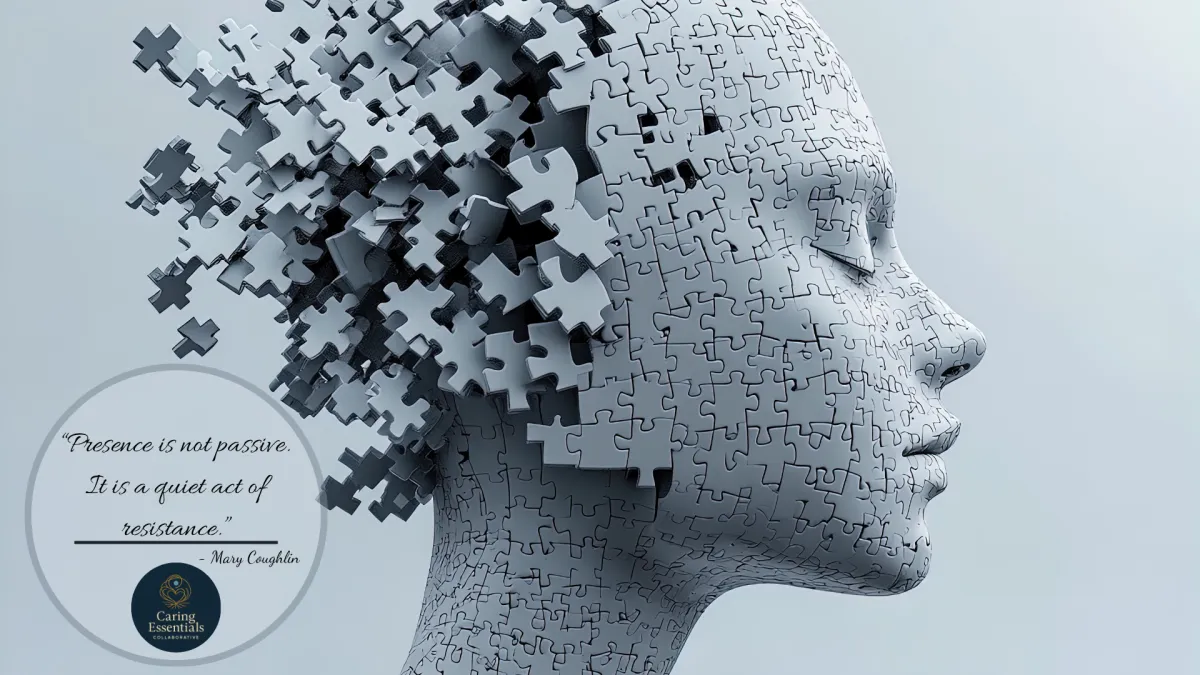
Love as a Systemic Force: Healing Society Through the NICU #4
“Presence is not passive. It is a quiet act of resistance.” – Mary Coughlin
Week 4: The Politics of Presence
“Presence is not passive. In a system built on speed, efficiency, and hierarchy, presence becomes an act of resistance.”
There’s a quiet politics to the work of care, the kind that doesn’t show up in legislation or headlines but is felt in every room where a vulnerable life depends on our humanity.
In healthcare, presence often looks small:
a clinician kneeling to meet a parent at eye level,
a nurse softening her tone to soothe a triggered nervous system,
a leader choosing transparency over control.
But in systems that reward productivity over connection, these are not small acts.
They are subversive. They are corrective. They are advocacy in its most elemental form.
In the NICU, presence has consequences. A baby’s stability can shift with the cadence of a voice.
A parent’s hope can rise or fall based on how we communicate uncertainty. A team’s culture can fracture or heal depending on whether people feel safe to be human with each other.
When we choose presence, we challenge a system that has forgotten its purpose. We interrupt the momentum of disconnection. We re-humanize a place where vulnerability is not an abstract concept — it is skin-to-skin, breath-to-breath reality.
This is the politics of presence:
the audacity to lead with love in environments shaped by fear,
the courage to create safety in structures that are still learning how,
the commitment to equity in spaces where bias can hide behind policy.
Trauma-Informed Developmental Care gives us the framework: safety, trust, collaboration, empowerment, equity. Caritas Coaching gives us the embodiment: tenderness, humility, compassion, intentionality. Advocacy gives us the purpose: to ensure that how we care reflects the world we are trying to create.
Presence is not passive. Presence changes systems. Presence, the kind that listens, stabilizes, and dignifies; it becomes a quiet revolution. It shifts how decisions are made, how conflicts are navigated, how teams function, and how families heal.
In a society marked by division and speed, presence becomes the medicine we need most. And the NICU becomes the teacher: showing us, again and again, that healing happens when someone chooses to stay, not rushed, not guarded, but open and attuned.
Reflection Prompt
Where does your presence feel most powerful — and most challenged?
This week, notice a moment when your presence shifted a dynamic, even subtly.
What made that shift possible?
Science | Soul | Skill
Science: Attuned presence modulates the stress response, supports co-regulation, and improves decision-making.
Soul: To be fully present is to offer a form of justice — the justice of being seen.
Skill: Try this micro-practice today: Before responding, pause long enough for one slow breath and silently ask, “What is truly needed here?”
Until every system remembers how to love,
Mary
